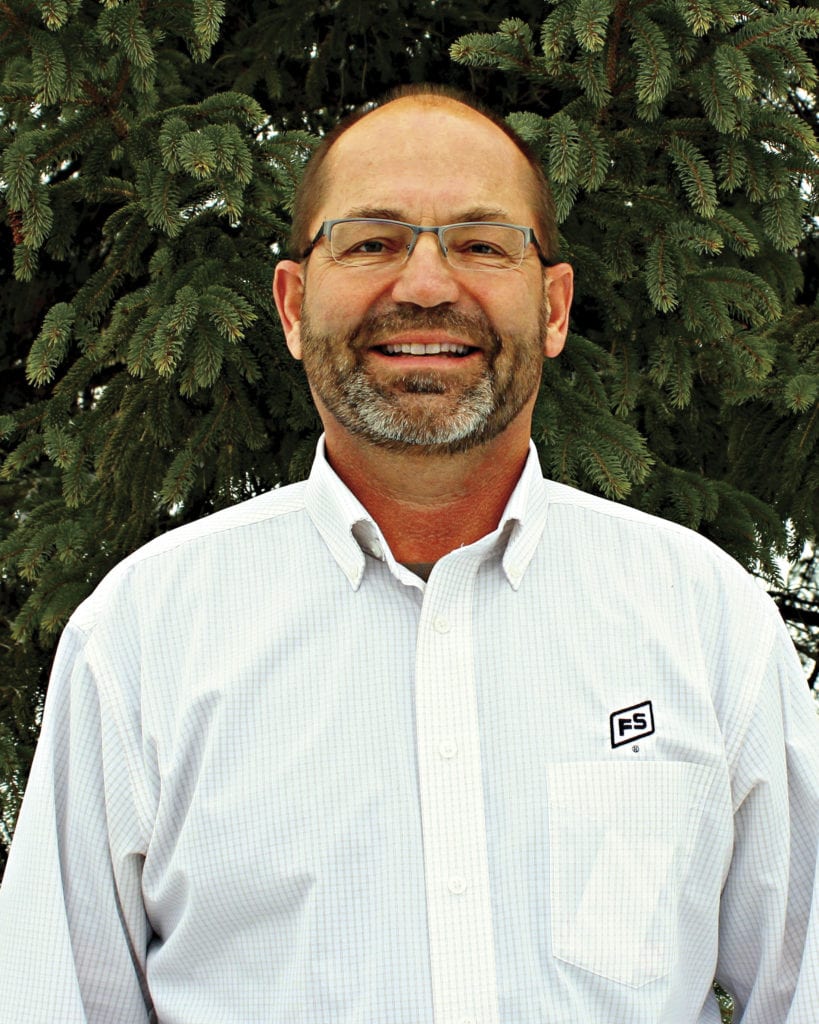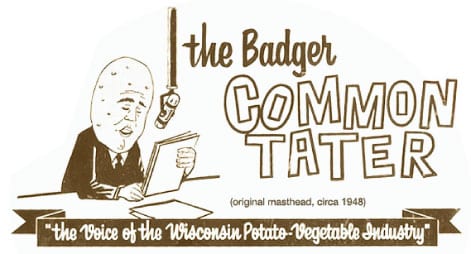
Joel Zalewski graduated from Antigo High School in 1975 and then began full time employment at Zalewski Bros., Inc., a certified seed potato farm in Antigo. They farmed about 1000 acres of potatoes, grain, and clover in Langlade County. Zalewski Bros. was started and originally owned by Marvin and Stanley Zalewski. Their sons Joel and Dan later shared joint ownership in the farm.
During his time as a farm owner, Joel served in several positions on the Wisconsin Seed Potato Improvement Association Board as well as the potato inspection committee, and the Wisconsin Agriculture Department’s committee to rewrite rules regarding nematode issues.
When Zalewski Bros. was sold in 1995, Joel worked as Farm Manager for Wirz, Inc., another certified seed potato farm in the Antigo area. He later accepted a position at Gallenberg Equipment. Even though he was no longer farming, Joel remained involved in agriculture at Gallenberg, manufacturing and selling agricultural products. He accepted a position in 2003 at Farm Bureau Cooperative, which later became Servco FS. Joel has held several positions with FS and in 2013 he was promoted to his current position as Northern Area Manager for Frontier-Servco FS.
Frontier-Servco FS was formed in 2012 with the merger of Frontier FS and Servco FS. Both companies were retail divisions of GROWMARK Inc. based in Bloomington IL. GROWMARK supplies a wide variety of agricultural and energy products and services under the FS brand. Within Wisconsin, this merger provided the diversity of products, facilities, and skilled personnel necessary to be an effective partner to the various types of farming operations in the state. It also consolidated all of the Wisconsin FS locations into one company.
In the following interview, Joel talks about a number of issues related to this month’s theme of supplies and equipment for the potato and vegetable industry.

From an agronomy standpoint, what do you recommend growers do to ensure a healthy start for a potato crop?
Take care of your land like it is your most valuable asset because it is. Minimize soil compaction as much as possible to maximize the potential of your crop. Be patient regarding planting until soil temperature and moisture are appropriate. Most of your input costs after planting are relatively fixed regardless of the quality of your stand. The foundation for a high quality crop is good seed planted carefully in good soil.
What potato and vegetable related services do you offer growers?
We provide traditional soil sampling as well as grid sampling. Our trained crop advisors meet with growers to evaluate this information and tailor recommendations to meet specific crop, field, and customer needs. We have floatation equipment and skilled reliable operators to perform variable rate applications of lime, gypsoil, and fertilizer.
Our energy department also provides quality fuels and lubricants to farms throughout Wisconsin and the Upper Peninsula of Michigan.
What are your recommendations for a strong fertility program for potatoes?
The foundation for a strong fertility program starts with grid sampling fields to determine the level of variability of PH and nutrients. Variable rate recommendations derived from grid sampling can help to minimize variability and input cost as well as maximizing yields and quality. As both input costs and environmental concerns remain high, a precise fertility program grows more important.

What can you offer growers in the area of precision farming and where do you see that segment of the industry heading in the future?
Frontier-Servco FS strongly believes in the value of precision farming. We have our own precision Ag department to support that belief. Our precision Ag department provides soil sampling, variable rate lime and fertilizer recommendations as well as nutrient management plans. For the farming operations raising corn they provide equipment and recommendations for variable rate seed spacing. We are also in the process of developing a scouting service with our drones.
What do you see as the keys to a strong nutrient management plan?
Keys to a long-term nutrient management plan include economics, long-term sustainability, and minimizing environmental impact. While economics is sometimes the most obvious part of a good plan, long-term sustainability is equally important. Not planning far enough ahead can create some significant economic problems down the road particularly when manure is part of the plan. Carefully managing nutrient levels in the soil is important and usually requires expert help. Proactively managing water movement to keep nutrients on the farm can be important where possible. An effective plan needs to carefully balance short term convenience and cost savings with longer term sustainability. Nutrient management will probably remain a growing challenge and careful planning is certainly required.
Are you aware of any new, exciting products on the market or on the horizon?
While not new, the use of drones and satellite imagery to monitor crop health seem to have great potential. The ability to identify and geo reference problem areas can be a strategic complement to other precision farming tools.

Can you offer any other suggestions to aid in grower success?
I have always felt that it is important to find trustworthy, knowledgeable partners in the industry to involve collaboratively as you plan for the future of your business. Wisconsin growers are fortunate to have support from first class organizations like WPVGA, the University of Wisconsin, and the Department of Ag. It is our goal at FS to be part of this partnership whenever possible.

Our mission is “To enhance our patrons’ and our cooperative’s long-term profitability” and our vision is “To be the best cooperative supplier and partner in our market.” As a cooperative, we are uniquely invested in the success of our patrons. We are committed to providing services and products that support this partnership. Our Antigo office is fortunate to have Bill Page and Pat Prasalowicz to support the potato industry. They have a lot of experience, current product knowledge, and grow lasting relationships with our customers and within the industry. While agribusiness will always be highly competitive, finding the right resources is an important key to success.


